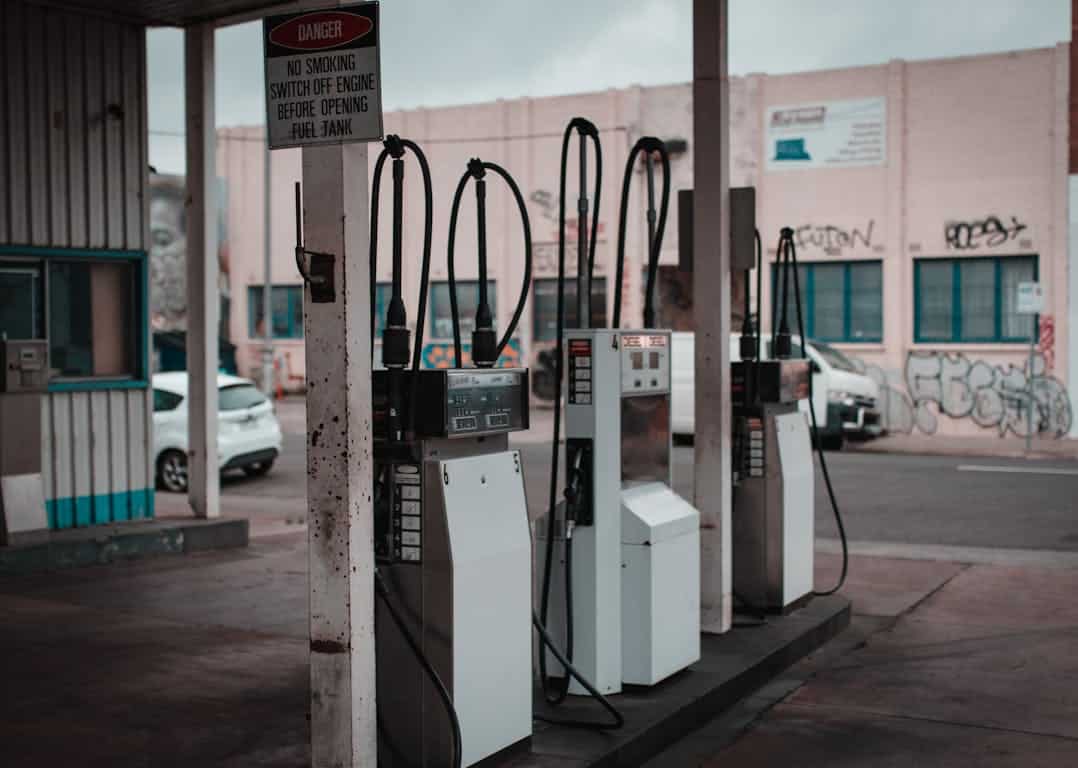A car is a sophisticated system and all vital parts interact with each other to provide a comfortable operation. One such frequently dismissed aspect is the filter. This seemingly modest component is a key player in safeguarding your engine and sustaining top performance.
What is a Fuel Filter?
A fuel filter is as the name implies, part of the fuel system of your car that eliminates impurities and contaminants from the fuel before it gets to the engine. It serves as a shield, stopping any harmful particles such as rust, dirt, and debris from finding their way into the engine and causing damage.
What is a Fuel Filter for?
A clean filter is essential for several reasons: A clean filter is essential for several reasons:
Protects the engine: The filter, in filtering out contaminants, protects sensitive engine components such as fuel injectors and pumps from wear and tear. The components are very sensitive and can be damaged by very small particles.
Maintains performance: Fuel flow can be restricted by a clogged filter, which slows down the engine. This appears as a loss of power, drooping, and even stalling.
Improves fuel economy: A fuel that is free from dirt enables the engine to burn fuel ineffectively thus improving fuel economy and potentially reducing the operating costs.
Reduces emissions: Clean fuel filters prevent dirty emissions by promoting complete combustion of fuel in the engine.
Who knows where the fuel filter is located?

The filter’s position depends on the make and model of your car. Nonetheless, it is usually located in the fuel line, either close to the tank or the engine compartment. Your car’s owner’s manual will tell you exactly where your fuel is located for your vehicle.
What is an appropriate frequency for fuel filter replacement?
The common life of a fuel filter in the car will depend on the make of your vehicle, as well as on driving conditions. Usually, it is advisable to replace the filter at 30,000 to 60,000 miles or will be specific recommendations in your owner’s manual.
Symptoms of a Clogged Fuel Filter
Several signs can indicate a clogged fuel filter: Several signs can indicate a clogged filter:
Reduced engine power: This is a general manifestation of limited fuel flow resulting from a plugged filter.
Engine hesitation: The engine may cause a hesitation or stumble at acceleration suggesting an irregular supply of fuel.
Stalling: In serious scenarios, a fuel that is blocked can result in the engine stalling and refusing to restart.
Decreased fuel economy: A plugged filter will inhibit proper fuel during combustion, which in turn will lead to reduced fuel economy.
Check engine light: Sometimes, a faulty filter can cause the check engine light to come on.
Disregarding a Clogged Fuel Filter
Ignoring a clogged filter can lead to various problems: Ignoring a clogged filter can lead to various problems:
Increased engine wear: Contaminants can harm delicate parts of the engine which may result in expensive repairs.
Poor performance: Having a clogged filter can impair the performance and drivability of your car.
Increased emissions: A clogged filter can prevent complete fuel combustion which results in high emissions and environmental damage.
How to Change Fuel Filter on Your Own
Although some car owners prefer to replace the fuel filter by themselves, it is very important to check your owner’s manual for specific instructions and safety warnings. If you don’t know how to fix cars, always call an expert or a mechanic.
Selection of an Appropriate Fuel Filter
Make sure you pick the right replacement filter for your vehicle’s make and model. An inappropriate filter can also weaken the performance and even harm the engine itself.
Advantages of Deploying a Fuel Filter of the Highest Quality
Investing in a high-quality fuel filter offers several benefits: Investing in a high-quality filter offers several benefits:
Better filtration: Superior filters give better contaminant removal resulting in excellent engine protection.
Longer lifespan: They usually last for longer than the standard filters, therefore, the replacement frequency will be reduced and money savings will be achieved.
Improved performance: High-quality fuel plays a critical role in the improvement of engine performance and fuel efficiency by ensuring a clean fuel supply.
Fuel Filter and Modern Cars are compatible
The modern cars come with advanced fuel injection systems that require finer filtration. Refer to your car’s manual or an authorized car mechanic to verify that you are using the right filter for your car.
Fuel Filters and Alternative Fuels
- If your vehicle uses alternative fuels such as ethanol or biodiesel, refer to your owner’s manual for appropriate filter information. These fuels may demand unique filter materials or change-out intervals.
- Fuel Filters and Maintenance fuel are some of the key maintenance parts that we have discussed in this document. This is because a filter has a specific job of filtering fuel to the fuel tank, it keeps the fuel clean and keeps any contaminants from reaching the tank. This keeps the car running smoothly and effectively. A filter needs to be changed out about every 10
- Routine servicing is an essential aspect of keeping your vehicle in good running condition and guaranteeing the maximum performance of your car. Do not overlook filter replacement as a part of your vehicle’s maintenance routine.
The Role of a Fuel Filter
A filter acts as a filter for the fuel tank and engine by obstructing impurities such as dirt, rust, and other debris from reaching crucial engine components. In this way, by capturing such contaminants, the filter promotes the efficiency and reliability of the engine, thus, prolonging its life.
The function of the engine operation
Maintaining a clean and steady fuel supply to the engine is critical for its proper operation. A filter that is clogged or inefficient can result in decreased fuel efficiency, engine misfires, and even stalling. Accordingly, proper filter inspection and replacement will avoid this kind of problem.
Preventing Engine Damage
Negligence to install a new filter causes a harmful operation of the engine. Such contaminants that outwit a damaged filter can lead to abrasion and corrosion within the engine, making repairs quite costlier and sometimes to the point of the vehicle being inoperable.
Enhancing Fuel Economy
A clean fuel filter helps fuel to burn more efficiently, enabling the optimization of fuel efficiency and saving on fuel costs eventually. The filter helps in making the engine run smoothly and in achieving better mileage by seeing to it that only clean fuel reaches the engine.
Types of Fuel Filters
Inline filters, cartridge filters, and spin-on filters are some of the fuel filter types available. Each of these traps has a unique design and installation process, but they all perform the same, that is, to trap the contaminants and prevent them from reaching the engine.
Symptoms of a Failed Fuel Filter
Detection of symptoms of a failing filter is important for timely replacement. Common signs are engine hesitations, hard starting, loss of power, and stalling. In case of any of these problems, it is recommended to check the filter and change it if needed.
Importance of Regular Maintenance
Maintenance should be performed regularly, in particular, the filter should be replaced periodically so that the car lives longer. Adhering to the manufacturer’s instructions about filter replacement frequencies is a preventive measure against possible problems and is conducive to preserving the engine’s maximal health.
DIY vs.Professional Replacement
Although fuel filter replacement is not difficult, some people would rather let professionals handle it, especially if they don’t feel comfortable working on cars. Nonetheless, for people who have the required expertise and tools, DIY replacement can significantly reduce labor expenses.
How to Select the Appropriate Fuel Filter
Compatibility with the vehicle’s make and model, filtration efficiency, and quality are some of the considerations when choosing a replacement filter. Choosing a good-quality filter from a well-known manufacturer provides consistent performance and superior protection to the engine.
Environmental Impact
Besides improving engine performance, fuel filters also help in the reduction of harmful emissions. Fuel filters capture pollutants and prevent them from entering the combustion chamber therefore filters help to give clean air and a healthy environment.
Long-Term Savings
Although the cost of changing a fuel filter is quite low when compared to other vehicle maintenance costs, if not done, the vehicle can be in complications and expensive repair. Routine replacement investment in filters can lead to cost savings in the long run by avoiding more significant damage to the engine.
Fuel Filtration Technology Development
The development of automotive technology has improved the quality of fuel filters which have become more efficient and durable. These developments include innovative materials and advanced filtration mechanisms, which result in better engine performance and reliability.
Ensuring Proper Installation
The installation of a fuel filter is one of the most important steps for its performance and the general health of the engine. Adhering to the manufacturer’s instructions and utilizing proper tools and methods are very important steps to achieve a safe and leakage-free installation.
Additional Tips
- Visual inspection: During ordinary maintenance checks, visually examine the fuel filter for damage or leakage.
- Fuel quality: The use of high-grade fuel in your engine reduces the contamination level and the life of your filter is increased.
- Professional advice: If you have doubts about fuel filters in any aspect and their replacement, do not hesitate to turn to a qualified mechanic for professional assistance.
Conclusion
The fuel filter, though not very outstanding, is very important, as it is it that ensures that your car always runs in a smooth, efficient, and reliable manner. Through awareness of its significance, changes at recommended times, and the use of a good-quality filter, you can improve the lifespan and performance of your vehicle. Keep in mind, that a clean filter is a joyful engine!
FAQs
What is the role of a fuel filter?
- The fuel filter is a device that removes the dirt from the fuel before it is supplied directly to the engine.
What is the frequency of changing a fuel filter?
- Check your owner’s manual, though usually every 30,000 to 60,000 miles.
What symptoms does a dirty fuel filter cause?
- Power loss, engine stuttering, stalling, poor fuel consumption, and check engine light.
Is it possible for me to replace the fuel filter myself?
- Perhaps, but refer to your manual, and if in doubt contact a professional.
What are the advantages of a high-quality fuel filter?
- Superior filtration, lifespan extension, and engine performance.

